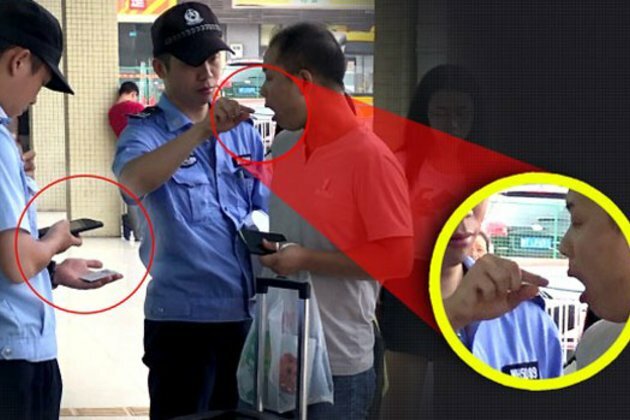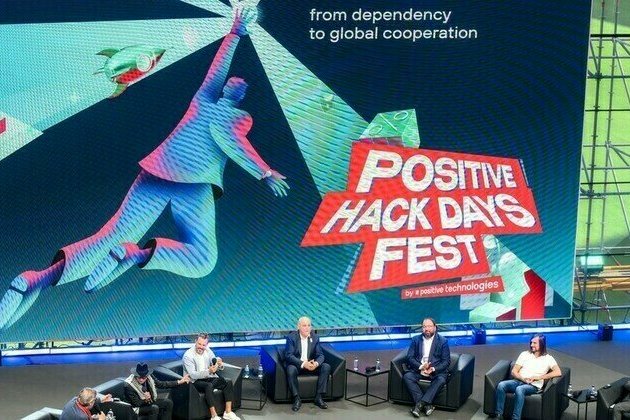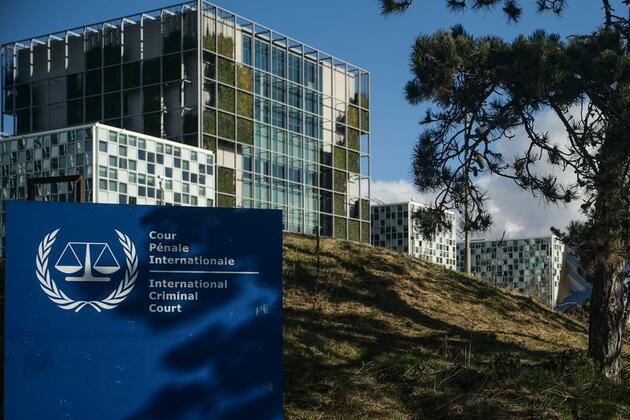China Gears up to Collect Citizens' DNA Nationwide
RFA
24 Aug 2019, 00:12 GMT+10

Provincial and municipal authorities across China are buying large amounts of instruments, tools and medical supplies that are designed to collect DNA samples from people, RFA has learned.
Online records of government tenders and contracts awarded show that local governments in China are placing orders for DNA sampling kits, testing instruments, sequencers, and other tools, spending around 10 million yuan each.
While the majority of contracts were awarded to Chinese companies, most of the DNA instrument analyzing technology is being supplied by U.S. biotech firm Thermo Fisher.
The uses cited for the purchased equipment in the procurement databases included "setting up a DNA database" and "upgrading police DNA laboratories."
Some local governments indicated that the authorities are focusing in particular on identifying male relatives and on building family trees within their database.
A tender notice posted by the Feidong county police in the eastern province of Anhui said that China has designated male-line DNA databases as a key project in law enforcement, following plans drawn up at national and provincial levels in 2018 and 2019.
Several tender announcements said the DNA collection program was being planned by the ruling Communist Party leadership nationwide.
An official who answered the phone at the Liuzhou police department declined to comment.
"We have already completed the tender process for this project, so why are you asking about it?" the official said.
However, mentions of the DNA collection program on the official websites of local governments varied hugely across China, with some citing the need to locate missing people, including children, and others saying the program is needed to improve police ability to investigate crimes.
A notice referring to the creation of a male DNA database in the central province of Hubei said the project was linked to population control, however, and that the project is expected to trace the male line across five generations.
Such a database would be able to identify adoptions, children born outside of officially sanctioned birth limits, and children born outside of socially sanctioned norms, the notice said.
Providing more mobility
China analyst Willy Lam said the DNA collection scheme could be linked to plans to open up the current household registration, or "hukou," system, to make it easier for rural residents to move into some of the smaller cities.
Under the old hukou system, which dated back to the Mao era of collective farming and a planned economy, each household accessed services from its place of registration, posing huge social problems for China's hundreds of millions of migrant workers and their families who had no access to schooling or medical care in the cities where they worked.
The hukou system was reformed in 2014 to supposedly rely on a person's place of residence and job rather than their birthplace, and officials promised at the time that the transfer of hukou registrations to another place would become possible.
But the promises haven't made life easier in practice for migrants, with authorities still requiring a considerable laundry list of proofs and documentation that many have found hard to obtain.
Lam said the DNA databases will likely be used in conjunction with existing artificial intelligence, facial recognition technology, and the social credit system, which imposes administrative sanctions on users whose 'social credit' score is low.
"If they use this DNA to build a national genealogical database, this will be very convenient for government surveillance operations," Lam said.
Data collected from babies
In the southern province of Guangdong, the DNA collection program is being extended to newborn babies, according to the official website of the Guangdong provincial government.
Authorities in the provincial capital Guangzhou issued the first ever electronic birth certificate containing a DNA bar code in the country in June 2018, the website said.
The new certificates will assist with the accurate identification of individuals, but will also be used to prevent thefts of newborn babies, human trafficking, and kidnappings, it said.
An employee who answered the phone at the Guangdong Precision Medicinal Application Co., which is running the project, confirmed that there are plans to roll out DNA collection from newborns nationwide.
"It's in progress; we are already implementing this project, and we will be rolling it out to the whole country," the employee said.
But the employee said the plan was only in its initial stages when asked whether parents are able to give consent to the collection of their babies' DNA.
"We have not officially disclosed this information for the time being," the employee said.
Asked if a consent form was part of the process, the employee said: "This must be signed."
"We haven't implemented the whole project yet; we are only at the preparatory stages right now," he said.
Accurate genealogies
Philip Beh of the University of Hong Kong said the gathering of male DNA meant that the authorities would be able to tell if people were related or not.
"If you give those genealogies to the government, and they collect so many DNA samples, they will be able to tell you whether the genealogy has been wrong, and whether it has been interrupted in the middle," Beh said.
"For example, they may find that this person isn't actually your father."
Earlier this month, authorities in the southern Chinese province of Guangdong began taking saliva samples from bus passengers arriving in Foshan, sparking concerns that the government may be rolling out a nationwide DNA database.
The police were also spotted storing the samples in a saliva collection card similar to those made by companies specializing in the collection and storage of DNA samples.
The New York-based group Human Rights Watch (HRW) reported in December 2018 that Chinese authorities in the northwestern region of Xinjiang are collecting DNA samples, fingerprints, iris scans, and blood types of all residents in the region between the age of 12 and 65.
"DNA and blood types are being collected through a free annual physical exams program called Physicals for All," the group said in a report.
"The mandatory databanking of a whole population's biodata, including DNA, is a gross violation of international human rights norms, and it's even more disturbing if it is done surreptitiously, under the guise of a free health care program," HRW China director Sophie Richardson said at the time.
The biometric collection scheme is detailed in an official document called "Regional Working Guidelines on the Accurate Registration and Verification of Population," dated July 2, 2017, it said.
"Chinese authorities seem to think they can achieve 'social stability' by placing people under a microscope, but these abusive programs are more likely to deepen hostility towards the government," said Richardson.
"Beijing should immediately stop these programs, and destroy all data gathered without full, informed consent."
DNA information is highly sensitive and can facilitate a wide array of abuses if it is collected or shared non-consensually, according to HRW, which called any compelled collection or use by the government "a serious intrusion on the right to privacy."
Reported by Ng Yik-tung and Wong Lok-to for RFA's Cantonese Service. Translated and edited by Luisetta Mudie.
Copyright © 1998-2018, RFA. Published with the permission of Radio Free Asia, 2025 M St. NW, Suite 300, Washington DC 20036
 Share
Share
 Tweet
Tweet
 Share
Share
 Flip
Flip
 Email
Email
Watch latest videos
Subscribe and Follow
Get a daily dose of Beijing Bulletin news through our daily email, its complimentary and keeps you fully up to date with world and business news as well.
News RELEASES
Publish news of your business, community or sports group, personnel appointments, major event and more by submitting a news release to Beijing Bulletin.
More InformationTechnology
SectionMother sues Google, Character.AI after son’s death
WASHINGTON, D.C.: A Florida mother, Megan Garcia, is suing Google and AI startup Character.AI, claiming their chatbot played a role...
Bajaj Markets Makes Choosing the Right Credit Card Easy!
HT Syndication Pune (Maharashtra) [India], May 26: Finding the ideal credit card is simpler than ever with Bajaj Markets, a financial...
International cyberbattle champions crowned at hack fest in Moscow
More than 40 teams from 18 countries took part in the competition during the Positive Hack Days (PHDays Fest) event ...
Musk back to 24/7 work on his business projects
The US tech billionaire has recently said he plans to reduce his role in President Donald Trumps administration Elon Musk has said...
Hack fest in Moscow sparks BRICS cyber ties
Positive Hack Days 2025 has become the staging ground for a major deal between Indonesia and Russias top cybersecurity firm BRICS...
Microsoft-ICC blockade exposes strategic risks, hastens Europe's tech autonomy drive
The path to full digital autonomy is proving to be not only longer, but far more urgent than many European policymakers had anticipated....
Business
SectionBuilder discounts drive sales spike, but housing outlook wary
WASHINGTON, D.C.: New single-family home sales in the U.S. rose sharply in April to their highest level in over three years as builders...
CEO says health push weakened Nestle, vows return to F&B roots
VEVEY, Switzerland: Nestle is realigning its focus on its core food and beverage operations after expanding into areas like health...
Ford sues California law firms over alleged Lemon Law fee fraud
DEARBORN, Michigan: Ford Motor Company has filed a lawsuit against several California lawyers and law firms, accusing them of cheating...
US drug launch prices double in four years, Reuters finds
BRUSSELS, Belgium: U.S. drugmakers are charging significantly more for new treatments, particularly those targeting rare diseases,...
Allegations of secret nursing home deals shake UnitedHealth
MINNETONKA, Minnesota: UnitedHealth shares took a sharp hit this week, after a report by the UK's Guardian alleged the healthcare giant...
Trump-backed $1.5 billion golf project breaks ground near Hanoi
HUNG YEN, Vietnam: A new US$1.5 billion luxury golf and residential project backed by the Trump Organization officially broke ground...













